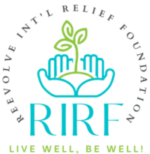We aim to promote a healthy and natural meal project which we believe should include a variety of whole, nutrient-dense foods that are minimally processed and free from artificial additives. Here are some key principles we believe you should keep in mind.
- Whole Foods: Incorporate whole foods such as fruits, vegetables, whole grains, legumes, nuts, and seeds into the meal plan. These foods provide essential nutrients and fiber that support good health.
- Organic and Local: Whenever possible, choose organic and locally grown foods to support sustainability and reduce exposure to harmful pesticides and chemicals.
 Balanced Meals: Aim to create meals that are balanced and include a variety of macronutrients such as protein, healthy fats, and complex carbohydrates. This will help to stabilize blood sugar levels and provide sustained energy throughout the day.
Balanced Meals: Aim to create meals that are balanced and include a variety of macronutrients such as protein, healthy fats, and complex carbohydrates. This will help to stabilize blood sugar levels and provide sustained energy throughout the day.- Healthy Fats: Include healthy fats such as avocados, nuts, seeds, and olive oil in the meal plan. These fats are essential for brain function, hormone production, and heart health.
- Natural Sweeteners: Use natural sweeteners such as honey, maple syrup, and dates instead of refined sugar.
- Herbs and Spices: Incorporate herbs and spices into the meal plan to add flavor and boost the health benefits of the food.
- Meal Preparation: Plan ahead and prepare meals in advance to ensure that healthy options are available throughout the day. This can include batch cooking, meal prepping, and using slow cookers or pressure cookers to save time and energy.
- Mindful Eating: Encourage participants to eat mindfully by taking time to savor their food, chew slowly, and focus on the experience of eating. This can help to improve digestion and reduce overeating.
By incorporating these principles into a health and natural meal project, participants can learn how to create and enjoy delicious, nutritious meals that support their overall health and well-being.


